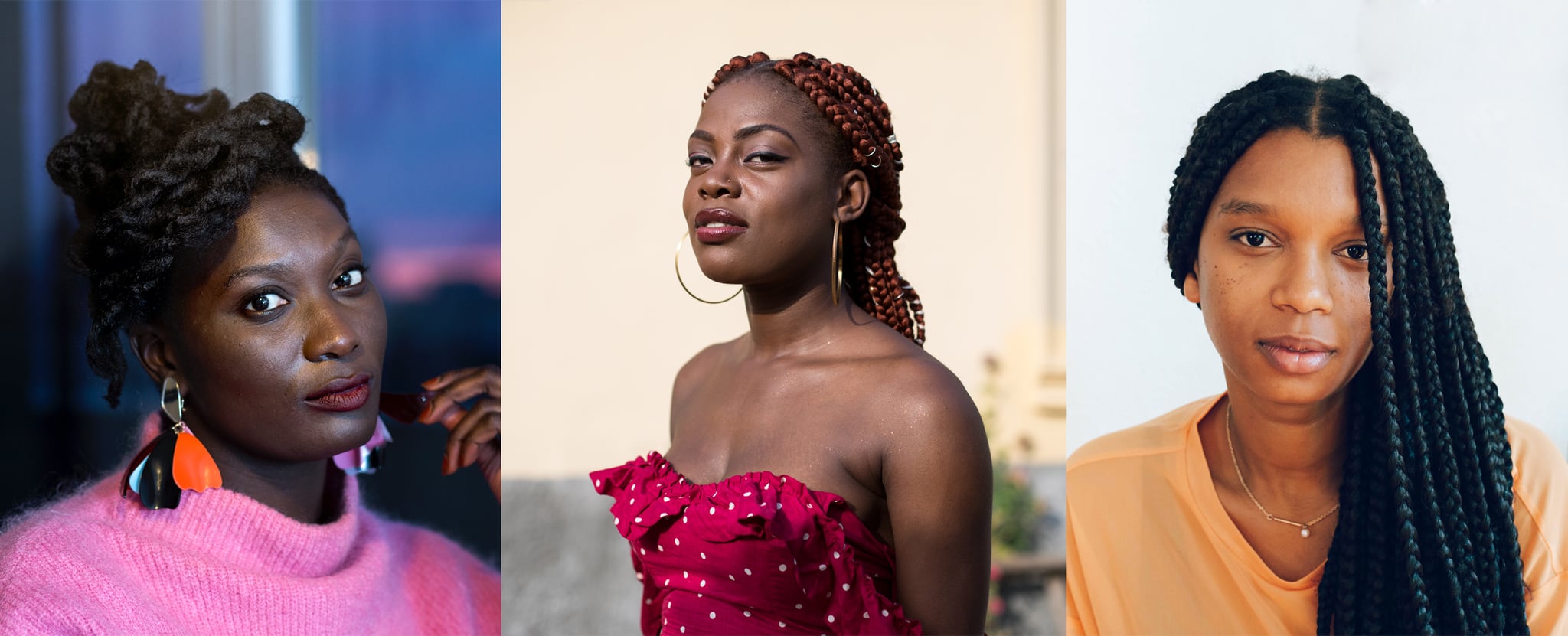
What Is the CROWN Act Dove Campaign?
Dove Is Working to End Race-Based Hair Discrimination Through the CROWN Act, and It Wants You to Get Involved

Did you know it's completely legal to discriminate against someone because of their hair? From coded words, like "clean-cut," to outright prejudiced policies (the US Army enforced a ban on locs until 2017), hair discrimination runs unchecked throughout the workplace and schools, creating a nightmarish reality for Black people, specifically Black women.
Although it may feel like something you only hear about in the 21st century thanks to a lively Twitter thread, the policing of natural and protective hairstyles is a centuries-old tradition. In the 1700s, Tignon Laws were enforced so Creole women of color were required by law to wear head wraps to diminish "excessive attention to dress." Three-hundred years later and not a whole lot has fundamentally changed. Black women today are regularly affected by both unbiased and biased prejudiced behaviors that prevent them from ever even seeing a seat at the table, let alone sitting in one. Forcing Black women to navigate in a world in which they're perpetually penalized for their hair, something inherently rooted in their identity, is, to put it plainly, traumatizing. Supporting the criminalization of these acts is one major and significant way to support Black women. This is exactly where the CROWN Act comes in.
What Is the CROWN Act?
After seeing countless cases of Black people denied employment and an overwhelming number of Black children being sent home from school because of their hair, Dove knew it was time to take action. The brand teamed up with the National Urban League, Color of Change, and Western Center on Law and Poverty to form the CROWN Coalition, an alliance tasked to create a more equitable and inclusive experience for Black people, specifically through the advancement of hair-discrimination legislation, also known now as the CROWN Act.
The CROWN Act, which stands for "Creating a Respectful and Open World for Natural Hair," is a law that prohibits discrimination based on hair texture and protective hairstyles, like braids, locs, twists, and knots. Through this law, Black employees and students will no longer be subjected to unfair judgment and pressured to conform to Eurocentric beauty standards.
Black women are 80 percent more likely to agree that they have to change their hair from its natural state to fit in at the office.
The CROWN Act legislation was first introduced to Congress in January 2019, and six months later, it was signed by Governor Gavin Newsom, making California the first state to legally protect people of color from discrimination on the basis of hair. As of today, seven states (California, Colorado, Maryland, New York, New Jersey, Virginia, and Washington) have signed this bill into law, and 24 more have introduced the legislation. While the CROWN Coalition has made huge strides in ending hair discrimination nationwide, there's still work to be done to eradicate it on a federal level.
What Does Hair Discrimination Look Like?
According to a Dove 2019 CROWN research study, Black women are 1.5 times more likely to be sent home or know of a Black woman sent home from the workplace because of her hair. Black women all too often report receiving grooming policies from their workplace because of their protective hairstyles, pressured to conform to antiquated and biased expectations of their employer. Not only does this discriminatory attitude stifle Black women's career growth, but it also ultimately destabilizes their household and the greater economy. Not to mention the emotional toll workplace discrimination has on a person. Black women are 80 percent more likely to agree that they have to change their hair from its natural state to fit in at the office. The truth of the matter is Black women are continuously evaluated not only on their merit and work performance but also on these intangible things, like how well they can code-switch in a meeting or how they choose to style their hair.
Black women are 1.5 times more likely to be sent home from the workplace because of their hair.
Hair discrimination also impacts Black students who are penalized for their hairstyles. Back in March, one student was kicked off of her cheerleading squad for not abiding by the uniformity rules of the team, which favored a "half up, half down" style incompatible with her natural hair texture. Other students have been prohibited from walking at graduation, nearly disqualified from athletic competitions, and the list goes on. Black students are being disproportionately affected by prejudiced policies. The bottom line: their hair has nothing to do with their education, yet they're being exposed to an unfair reality in which it does.
What Are the Next Steps For the CROWN Act?
On Sept. 21, the US House of Representatives passed the CROWN Act federal bill. Now the CROWN Act Coalition is advocating for the US Senate to pass the CROWN Act as a federal law to ensure someone's hair texture or protective hairstyle — both of which are traits historically associated with someone's race — will not be a basis on which they can be discriminated. This will protect Black people in both the workplace and in K-12 public and charter schools. The goal is to make hair discrimination federally illegal in all 50 states.
Dove and the CROWN Coalition have additionally committed to accelerating their efforts this year to not only eradicate hair discrimination but to also fight against systemic racism as a whole. Along with the new CROWN Fund, in which Dove pledged $5 million of ongoing support, it has committed to working with existing organizations, like National Black Child Development Institute (NBCDI) and National Council of Negro Women, Inc., to not only support the Black community but also explicitly call out racial injustice.
How Can I Help and Be a Part of the Change?
While the CROWN Act is making moves, it still needs attention and your voice behind it. So, what can you do?
Sign the PetitionBy signing the CROWN Coalition's petition, you're helping to galvanize support for the CROWN Act. Although the CROWN Coalition has reached its original goal of 200,000 signatures, it needs your help to reach its additional goal of 300,000. By signing this petition, you're helping to urge legislators to vote yes on the CROWN Act.
Write to Your RepresentativesLooking for a more direct approach? Dove just made it incredibly easy to find and write to your state and federal representatives to further urge them to support the CROWN Act. You can check out all of the links you need and a letter template PDF here.
Share These StoriesOur news cycle moves quickly and often leaves out impactful stories that showcase exactly how racial injustice and hair discrimination affect Black lives on a daily basis. So do your research, read, and share when you can. Even if it only reaches one person and encourages them to sign the petition or send a letter, educating one person about the CROWN Act and why it's important is better than reaching no one at all.